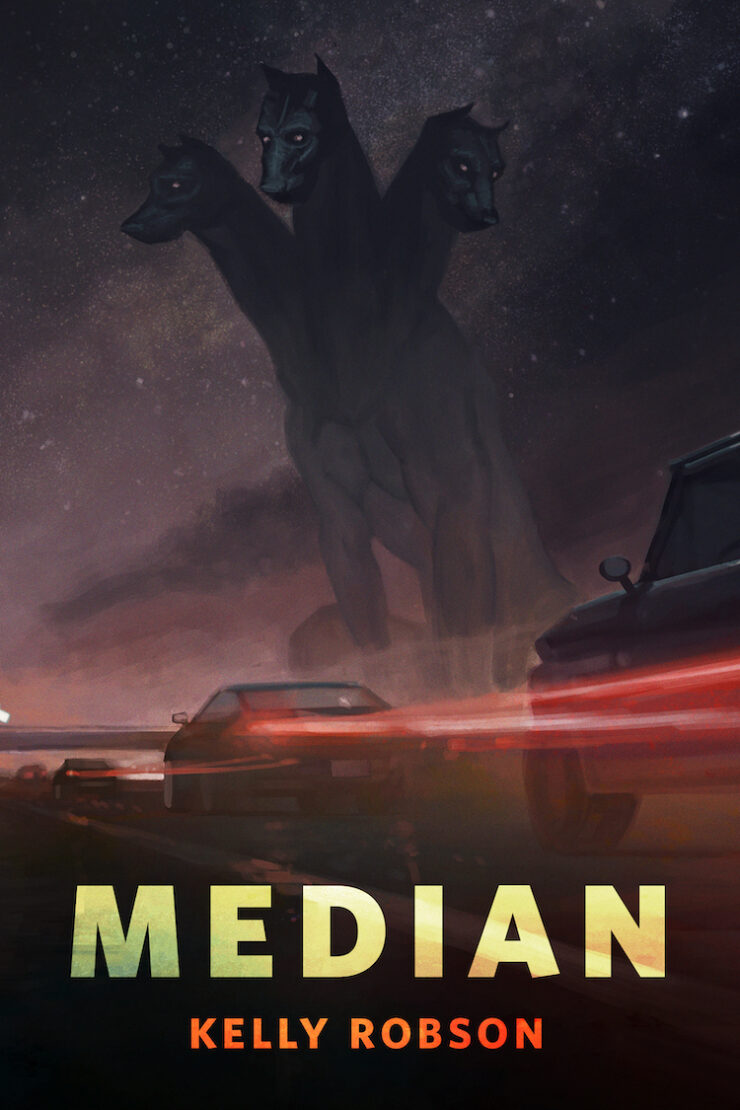Lights! Imp demons! Action! It’s time to star in some Moving Pictures.
Summary
Deccan Ribobe, last Keeper of the Door at Holy Wood, dies without ever managing to train a replacement. He is collected by Death, and his fire goes out, releasing something onto the world. The Alchemists of Ankh-Morpork cause an explosion, and one of them runs out and straight into Cut-Me-Own-Throat Dibbler, and tells the crowd that he’s just discovered Octo-cellulose. Archchancellor Mustrum Ridcully is at the Unseen University, being a very strange Archchancellor indeed; he was appointed because he was from the country and had very little to do with wizard factions, but that means that he doesn’t pay much attention to the goings on around the school. The Patrician’s spy for the Alchemists Guild tells him that the alchemists have discovered something extraordinary, only he hasn’t seen it yet. The Alchemists themselves have gotten together to discuss this new invention—the advent of moving pictures. They know the wizards won’t like the invention, so they decide to pack up and head to Holy Wood to develop this process away from them.
Buy the Book
Along the Saltwise Sea
Victor Tugelbend is a student at the university who is smart, but does not want to be a wizard, and so works very hard not to pass his exams—he only gets scores between 80 and 85-ish so that he can remain a student. The Bursar has noticed this and suggests to Ridcully that they give him an exam with only one question, preventing him from pulling the usual trick. Victor is out that night drinking, and on his way back he comes across some folks putting together an outdoor screening. He stops alchemist Thomas Silverfish from getting mugged, and the man asks Victor if he’d like to be in moving pictures. Victor doesn’t know what he talking about, so he refuses, but Silverfish give him his card and suggests that he stay for the show. Dibbler is about and Victor buys a sausage in a bun from him (against his own better judgment), and Dibbler tells him that moving pictures are becoming all the rage. As they’re being introduced, Victor gives the rest of his sausage to a dog that actually says the word “woof” to him.
The next morning, Ponder Stibbons is taking his exams and wondering where Victor has got off to. Victor is on his way to Holy Wood, and directly behind him are Dibbler, Detritus the troll, and Gaspode the Wonder Dog (who has hitched a ride in a timber wagon). None of them know why are are going—they just have to go. When Victor arrives, he’s not quite sure what to do and he’s hungry and he hasn’t got any money. He goes to the address on Silverfish’s card, but there’s a very long line and the guard won’t let him in. Victor heads around to find a weak spot in the fence, takes up a piece of paper and walks around importantly. He sees a scene being filmed and asks someone where he can deliver an urgent message to Silverfish. Getting to his office, he reminds the man of who he is and tells him that he needs to work in moving pictures. After going down his list of skills (which aren’t many), Silverfish asks if he’d like to act. Victor agrees, but asks about why he couldn’t stop himself from coming here. Silverfish explains that it’s the magic of Holy Wood.
Victor wants to know how moving pictures work, so Silverfish calls in Gaffer Bird, their head handleman, who has a bunch of imp demons in a box painting the film frames quickly. Dibbler gets to Holy Wood and sees Detritus in the line outside. He suggests that the troll come work for him, gets Detritus to knock the guard out, and installs him there in the guard’s stead. Then he heads to Silverfish’s office, and double talks him into an offer; he will handle all the paperwork and let Silverfish get back to the creative side of things. He suggests that they put ads at the end of the films and have businesses pay for them. He also suggests that they make the “clicks” themselves more exciting fare. The next one they shoot is about Cohen the Barbarian, with Victor playing Cohen and discovering—to his shock—that the trolls he will be battling are real trolls. (Their names are Galena and Morraine and they’re perfectly nice, though Galena is thinking of doing a name change, and Victor helpfully suggests Rock.) Meanwhile, outside a fault in reality, a cluster of somethings have just found their way in.
Commentary
Okay, so I’m pretty sure I read this one years back, but I remember… very little of it. (It’s harder for the individual stories to stick, right? They’re kind of unmoored in the Discworld mythos.) But you know, it’s a Discworld book full of old Hollywood references, which is extremely my bag. So this is already pretty fun.
And it makes sense to focus a story on this idea of the “creation” of the moving pictures industry because it is both unique and also, pointedly, not very old at all. People have basically been making movies for a little over a century. TV has been around for even less time. So we genuinely know more about its history and how things got made. And we are dealing with an industry that is famous for helping people achieve greatness, but also for being unbearably fake (and often abusive). It’s full of the sort of contradictions that Pratchett and satire love.
But first we start with the alchemists’ breakthrough, and their immediate removal from the city because they know “wizards won’t like it.” I think one of my favorite things within this section is the Patrician’s spy telling him that the alchemists liked Dibblers food while they were watching the moving picture. The spy doesn’t know what they were actually doing because they wouldn’t let him in, but it’s obviously in reference to the sort of garbage we’re always eating at movie theaters. The idea of certain activities being tied to specific (usually bad) food is an undeniably human oddity. Why do we want hot dogs at baseball games? Why do we eat the world’s worst “nachos” while being entertained? Why is half the point of going to the movies shoving M&Ms in your face? (Help, I started wondering if the free bread thrown into crowds during gladiator games in Rome was also trash, my brain is spiraling as I’m eating popcorn…)
There are countless references here, the most important one being Thomas Silverfish, who is clearly built off of Samuel Goldwyn of Metro-Goldwyn-Mayer (whose real name was Samuel Gelbfisch). We’ll get more of that within his character as the story goes on. I was also fascinated by the conversation among the alchemists about how films should work, whether they should be purely educational and how “tasteful” they should be and so on. Pieces of the talk invoke the eventual censorship that ruled Hollywood for a few decades after they’d been allowed free reign at their inception. And then there’s Dibbler’s arrival, which heralds the seedier snake oil aspects of Hollywood.
People don’t always believe that the stories around Hollywood and its history are real, or that people actually talk this way, but I’ve been around some sets (and even worked on one), and in California itself? Oh, yeah. They do. It’s all real. The “your people will call my people, we’ll do lunch” crowd are a thing, and they are acutely distressing to be around because the disconnect from reality is severe. Pratchett talks a bit about reality at the beginning to the book, so… you can guess where this is all going.
The problem, though, is that Pratchett gave Victor the Clark Gable mustache. Which means that whenever I think of Victor my brain is just dropping Clark Gable into the book. In… wizard clothes.
Nevermind. This is not a problem, this is a gift.
Asides and little thoughts:
- Ridcully is called Ridcully the Brown in reference to Tolkien’s Radagast, which gives you a pretty good idea of what to expect from the fellow—sort of an inverse Radagast, in that he’s a fellow who is accustomed to being out in nature, but not particularly fussy over it.
- The conversation that Ridcully has with the Bursar about how the dean needs to run twenty miles—“He’d be dead.” “He’d be healthy.” “Yes, but still dead.”—is the sort of conversation I feel like I’m always having with sporty people. Look, some of us are just not made to marathon, Ridcully. (I went for a run this morning. It was awful.)
- The “Can’t sing. Can’t dance. Can handle a sword a little.” is in reference to Fred Astaire’s screen test for RKO, which according to legend came with a write up that said: “Can’t sing. Can’t act. Balding. Can dance a little.” The story is often used to remind people to follow their dreams because obviously Fred Astaire could sing and act, and is one of the best dancers in the history of cinema. But, as with all myths, it’s probably not entirely accurate—Astaire claimed later that the report actually read: “Can’t act. Slightly bald. Also dances.” The same energy, for sure, but the first version is better for comedic purposes because it’s snappier and far more glib in tone.
- The suggestion that Galena become Rock is clearly a reference to Rock Hudson. His actual name was Roy (Scherer), and he went to a high school that I used to do speech team competitions in. That’s not important trivia, it’s just funny to me personally.
Pratchettisms:
Either your clothes died when you did, he thought, or maybe you just mentally dressed yourself from force of habit.
It wasn’t that alchemists hated other alchemists. They often didn’t notice them, or thought they were walruses.
A month went by quickly. It didn’t want to hang around.
It wasn’t enough to be what you were, you had to be working to be something else.
And he had a thin mustache, which in a certain light made him look debonair and, in another, made him look as though he had been drinking a thick chocolate milk shake.
You needed to do more than end your sentence with exclamation marks to get a round of applause from an Ankh-Morpork crowd.
Next week we read up to… “A thousand elephants. I wonder what they want them for?”










